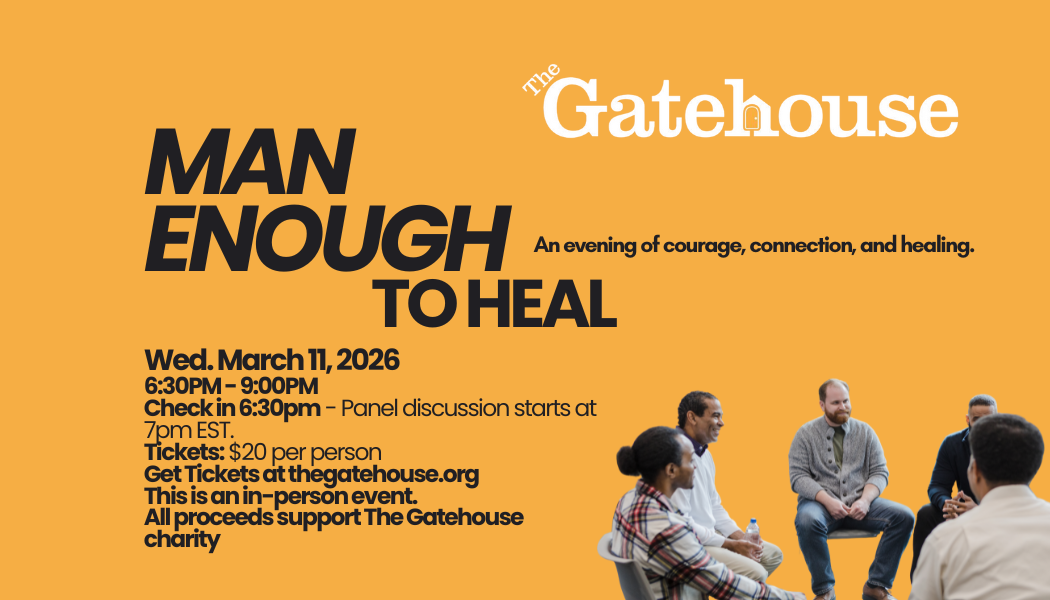Trauma-Informed Advocacy for Survivors 101
By: By: Katie Hucklebridge, DSSW, BSW[c], ASIST
The key to being a true advocate for survivors of childhood sexual abuse (CSA) is to be trauma-informed.
But how does someone become trauma-informed? First, you must recognize the prevalence of adverse childhood experiences (ace’s)/ trauma among people. Second, recognize the behaviours and symptoms which result from traumatic experiences. Lastly, to be a trauma-informed advocate, you must treat individuals who have experienced trauma with respect and kindness. Each of these steps is key to helping survivors recover from their trauma and work towards self-advocacy.
Those of us who are privileged enough to not be CSA survivors ourselves must remember that having the power to advocate with survivors, also means having the power to inflict further abuse. By recognizing this necessary balance, we allow ourselves to become true allies.
When asked about advocating for survivors, The Gatehouse’s very own Charmaine Loverin had this to say: “Something I wish people would know or do before advocating for survivors is to be curious for, inquire in and understand the commitment it takes to be a proactive footprint on the path to change. You must be willing to show up and sustainably live inside the winning vision to achieve the advocacy goal.” As advocates, we are the foot soldiers for the change we demand, our survivors are the leaders.
For the survivors themselves leading the fight Charmain suggests the following: “Never lose sight of what you, as a survivor needed. Start from there, then when helping others, making a difference feels natural. It creates a relatable and authentic compassion when sitting with others who are vulnerable. Never forgetting we’ve been there too.”
So, what are some practical ways one can become a trauma-informed advocate for survivors of childhood sexual abuse?
First and foremost, if you know a survivor personally, or are a survivor yourself ask the community what it needs. Whether that means donating to the efforts of The Gatehouse or volunteering your time as a volunteer or trained facilitator. Educating the public about the prevalence and the impacts of childhood sexual abuse is also a fantastic form of trauma-informed advocacy.
Second, do your research. Groups such as 1 in 6, RAINN, or Darkness to Light offer great insight into the lives of survivors of childhood sexual abuse. Alternatively, The Gatehouse provides a list of books, videos, and podcasts available for further learning on our website. If you’re a partner of one of our survivors, please feel free to check out the partner’s support group!
Third, get out there! Openly discuss (without disclosing any information without permission, or as much as you feel comfortable (survivors only!)) childhood sexual abuse in the appropriate settings, such as human services workplaces (social services, healthcare, etc.)
Upcoming Advocacy Event September 21, 2021
https://charmaineloverin.com/events-news/
EVENT
LOVERIN’S LAW – QUEENS PARK LOBBY
DATE: Tuesday September 21st, 2021
TIME: 12Pm- 4pm
WHERE: Queens Park, Toronto
FOR EVENT UPDATES VISIT Facebook @centreformentalhealthtransformation Page and go to “Events“ – LOVERIN’S LAW LOBBY
COVID 100 ppl Max
Recommendation;
Wear mask
Social Distance
What we need: 4 Marshall’s to help with crowd
You will be attending to show support for Loverin’s Law which is a request to mandate an Awareness & Prevention Week for Abuse Prevention in all Ontario Schools during the proclaimed month for Child Abuse Prevention
Current school policies describe under the safe schools and mental health policies; how educators are trained to identify and report abuse. The policies allow the OCAS signature “Dress Purple Awareness Day” this event shows youth and students there is people are there to help. The policy also is mandates education support for students on “inappropriate touching, neglect, healthy relationships, and bullying prevention. Neglect is not taught.
All the above policy mandates are important to sustain and……..
Students are NOT taught the actual life skills and language use of the word “Abuse”
At reading ages 5-7 kids CAN be appropriately be taught under the same context and content as “Stop” and “Danger “ the word “ Abuse”, same for more education on language use “ Healthy Boundaries”, “Trust” “Grooming”
Abuse is an empty word till it becomes learned context or an experience
8-12 years old and grades 3-6 CAN be taught the very important and different kinds of context and real language skills for abuse prevention like: verbal, emotional, physical, domestic violence, neglect and sexual
And 13+ grades 7+ CAN be educated on the cultural histories and advocacies for abuse prevention
This CANNOT be taught in ONE DAY, ALL SCHOOLS must MANDATE “Loverins Law” by implementing a full learning a week for abuse prevention education
It’s time!
Bring your advocacy boards demonstrating YOUR words why Loverins Law is important for you! Advocate from your position as survivor, or parent, or educator or worker!
Use above language if you want from the above or email Charmaine at charmaineloverin@gmail.com
Expect Speakers from Education system, police forces, child protection agencies, parents, students and survivors!

